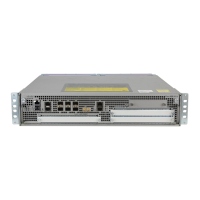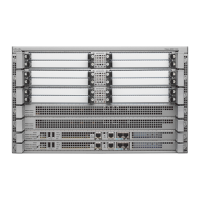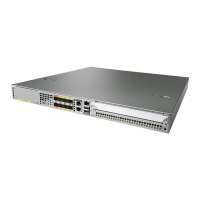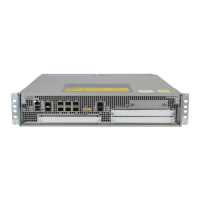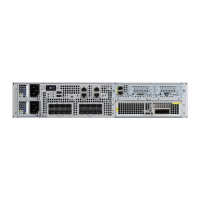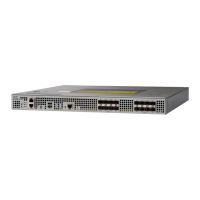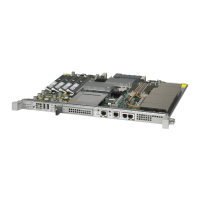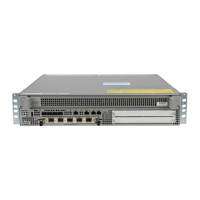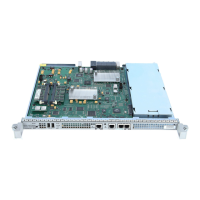17-5
Cisco ASR 1000 Series Aggregation Services Routers SIP and SPA Software Configuration Guide
OL-14127-08
Chapter 17 Configuring the 2-Port and 4-Port Clear Channel T3/E3 SPAs
Configuration Tasks
Internet address is 110.1.1.2/24
MTU 4470 bytes, BW 44210 Kbit, DLY 200 usec,
reliability 255/255, txload 11/255, rxload 53/255
Encapsulation FRAME-RELAY
Specifying the Interface Address on a SPA
SPA interface ports begin numbering with “0” from left to right. Single-port SPAs use only the port
number 0. To configure or monitor SPA interfaces, you need to specify the physical location of the SIP,
SPA, and interface in the CLI. The interface address format is slot/subslot/port, where:
• slot—Specifies the chassis slot number in the Cisco ASR 1000 Series Routers where the SIP is
installed.
• subslot—Specifies the slot of the SIP where the SPA is installed.
• port—Specifies the number of the individual interface port on a SPA.
The following example shows how to specify the first interface (0) on a SPA installed in the first subslot
of a SIP (0) installed in chassis slot 2:
Router(config)# interface serial 2/0/0
This command shows a serial SPA as a representative example, however the same slot/subslot/port
format is similarly used for other SPAs (such as ATM and POS) and other non-channelized SPAs.
For more information about identifying slots and subslots, see the “Identifying Slots and Subslots for the
SIP and SPAs” section on page 4-1.
Optional Configurations
There are several standard, but optional configurations, that might be necessary to complete the
configuration of your serial SPA.
• Configuring Data Service Unit Mode, page 17-5
• Configuring Maintenance Data Link, page 17-7
• Configuring Scramble, page 17-9
• Configuring Framing, page 17-11
• Configuring Encapsulation, page 17-12
• Configuring Cable Length, page 17-13
• Configuring Invert Data, page 17-14
• Configuring the Trace Trail Buffer, page 17-15
• Configuring QoS Features on Serial SPAs, page 17-16
Configuring Data Service Unit Mode
Configure the SPA to connect with customer premises Data Service Units (DSUs) by setting the DSU
mode. Subrating a T3 or E3 interface reduces the peak access rate by limiting the data transfer rate.
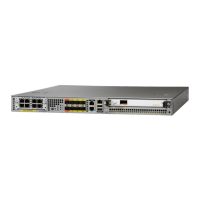
